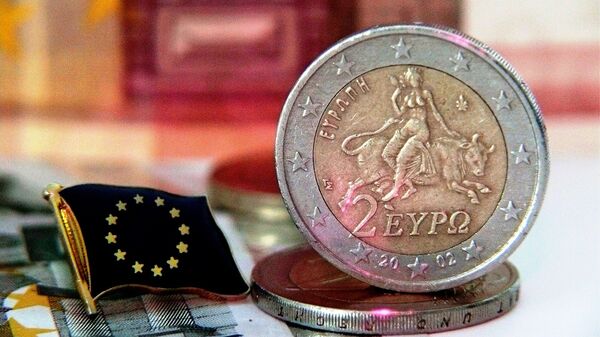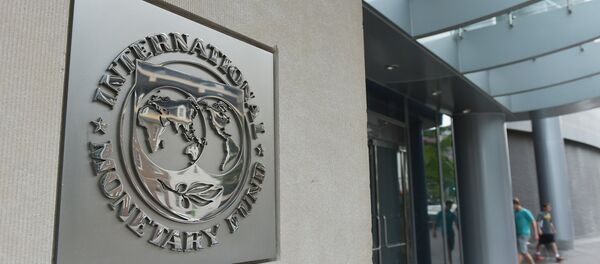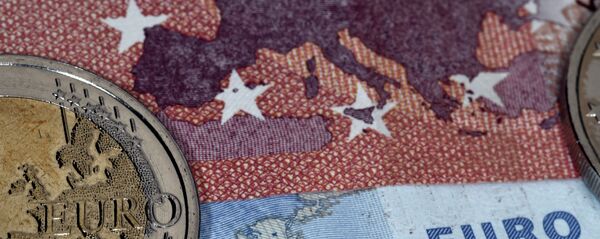Kristian Rouz — The Eurozone's GDP growth has dramatically slowed during the beginning of this year, after having posted its best year in nearly a decade in 2017. This despite the European Central Bank's (ECB) ongoing ultra-accommodative policies of zero and negative interest rates (ZIRP and NIRP, respectively) coupled with the ongoing multibillion-euro bond purchases.
ECB policymakers are citing concerns of possible disruptions in foreign trade as hampering investor and manufacturer confidence, but the challenges to the 19-member bloc's GDP expansion could be structural as well.
Quarter-on-quarter growth slowed to 0.4 percent in 1Q18, according to Eurostat, down from 0.7-percent expansion in 4Q17. This is the weakest pace of Eurozone GDP growth since mid-2016 when the UK voted to separate from the European Union (EU).
The single currency area's annual growth slowed to 2.5 percent in Q1 from 2.8 percent the previous quarter, but there is a widespread worry that the slowdown could continue into the subsequent quarters.
READ MORE: Eurozone Growth Slows Down as EU Unveils Post-Brexit Budget Plan
However, some expect the slowdown to be temporary.
"The moderation in recent months was worsened by cold weather, a historically severe flu season in Germany, extensive strikes in France and other temporary factors," Moritz Degler of Oxford Economics said.
However, consumer demand, which is driving some 70 percent of the Eurozone's economic expansion, has not yet shown any signs of softening.
"There is so far no evidence that the moderation in the pace of economic expansion reflects a durable softening in demand," ECB Executive Board member Peter Praet said. "Recent information remains consistent with a solid and broad-based expansion in domestic demand."
Nonetheless, the ECB still expressed caution over the recent developments in foreign trade. The US has enacted customs tariffs on the imports of aluminum and steel, which has affected several Eurozone producers and their exports.
READ MORE: EU Officials Call For Negotiated Solutions to Trade Disputes
Despite that some European manufacturers have expressed confidence that they would secure tariff carve-outs, Washington's move has dampened investor confidence, which has passed on to the broader economy.
"In a scenario in which the US increases tariffs markedly on imported goods from all trading partners that retaliate symmetrically against it, the outcome for the world economy would be clearly negative," Lucia Quaglietti, a researcher at the ECB, wrote in a note earlier this month.
Yet another Eurozone indicator has shown a deterioration in investor confidence — despite the ECB's monetary stimulus. A Sentix confidence index fell to 19.2, its lowest since February 2017, from 19.6 in March.
Besides, Sentix' overall expectations measure has dropped to its lowest since October 2014 — at that time, the Eurozone was still recovering from the aftershocks of the early-2010s debt crisis.
"The German economy has lost considerable momentum since the beginning of the year," Ralph Solveen of the Frankfurt-based Commerzbank said. "[The GPD would] continue to grow more slowly in the further course of the year than in the previous year, even if the upswing is not yet over."
READ MORE: ECB Turns to US Fed for Clues on Policy Normalization
It is not yet clear whether the single currency area's economy has experienced any major economic deterioration in the ongoing Q2, as the respective macroeconomic reports have yet to be released.






